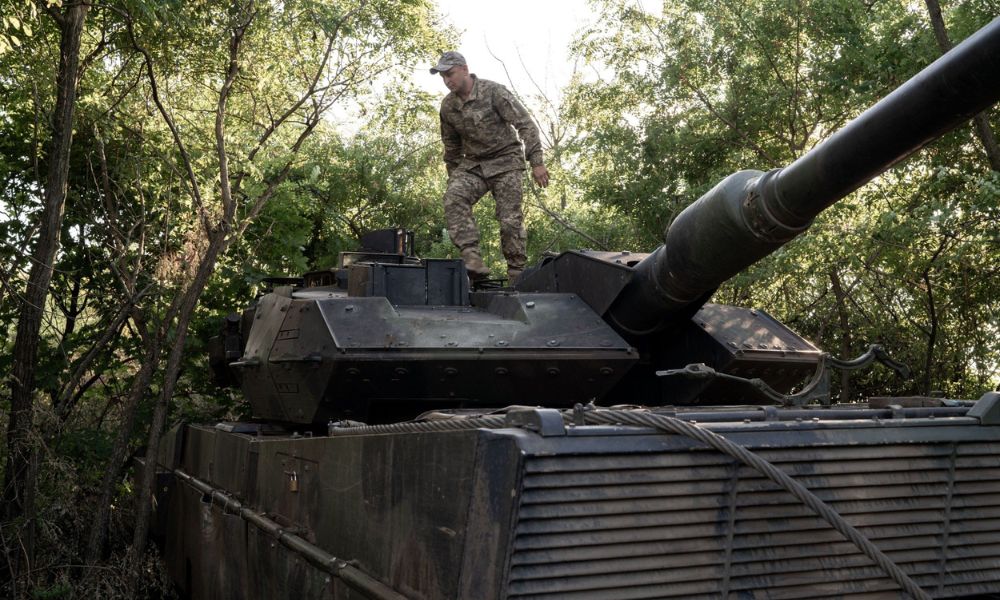
The Ukraine-Russia war is a major geopolitical crisis that has had a significant impact on the world. The war began in February 2022 when Russia invaded Ukraine, a sovereign state in Eastern Europe. The invasion was met with widespread condemnation from the international community, and many countries have imposed sanctions on Russia in response.
The war in Ukraine has had a devastating impact on the Ukrainian people. Millions of people have been displaced from their homes, and thousands have been killed. The war has also caused a humanitarian crisis, with millions of people in need of food, water, and shelter.
The war has also had a significant impact on the global economy. Western sanctions have caused the ruble to plummet and have led to widespread shortages of goods and services in Russia. The war has also disrupted the global energy market and has raised the risk of a food crisis.
The war in Ukraine is a major challenge for the international community. It is important to find ways to end the war and to bring peace and stability to the region. It is also important to address the underlying causes of the conflict, such as NATO enlargement and Ukraine's pro-Western orientation.
The war in Ukraine is a reminder that peace and security cannot be taken for granted. It is important for the international community to work together to prevent future conflicts and to build a more peaceful and just world.
In this blog, we will explore the main causes of the Ukraine-Russia war, its impact on the people of Ukraine and Russia, the global implications of the war, and what can be done to end the war and bring peace to the region.
The Ukraine-Russia war is a complex conflict with a long history. However, there are a few key factors that have contributed to the current crisis.
One of the main concerns for Russia is the expansion of NATO, the Western military alliance. Russia sees NATO as a threat to its security and has repeatedly warned against its eastward expansion. In 2008, NATO leaders agreed that Ukraine and Georgia would eventually become members of the alliance, a decision that angered Russia.
After the collapse of the Soviet Union in 1991, Ukraine began to move towards closer integration with the West. This included pursuing membership in NATO and the European Union. Russia has seen these moves as a betrayal and a threat to its sphere of influence.
In 2014, Russia annexed Crimea, a peninsula in southern Ukraine, after a controversial referendum. Russia justified the annexation by claiming that Crimea was historically Russian territory and that its residents wanted to be part of Russia. However, the annexation was widely condemned by the international community as a violation of international law.
In 2014, pro-Russian separatists in eastern Ukraine's Donbas region launched a war against the Ukrainian government. Russia has supported the separatists with weapons and troops, but it has denied that it is a party to the conflict. The war in the Donbas has killed over 14,000 people and displaced millions more.
Some experts believe that Russian President Vladimir Putin is motivated by a desire to restore Russia's great power status and to create a new sphere of influence in Eastern Europe. They argue that Putin sees Ukraine as a core part of this sphere of influence and is willing to use military force to prevent it from joining NATO or the EU.
The Ukraine-Russia war has had a devastating impact on the people of Ukraine. Millions of people have been displaced from their homes, and thousands have been killed. The war has also caused a humanitarian crisis, with millions of people in need of food, water, and shelter.
The war has also had a significant impact on the Russian economy. Western sanctions have caused the ruble to plummet and have led to widespread shortages of goods and services. The war has also damaged Russia's reputation on the world stage.
The Ukraine-Russia war has had a significant impact on the global order. The war has raised tensions between Russia and the West and has led to a renewed arms race. The war has also disrupted the global economy and has raised the risk of a food crisis.
The war in Ukraine is a major challenge for the international community. It is important to find ways to end the war and to bring peace and stability to the region. It is also important to address the underlying causes of the conflict, such as NATO enlargement and Ukraine's pro-Western orientation.
The war in Ukraine is a reminder that peace and security cannot be taken for granted. It is important for the international community to work together to prevent future conflicts and to build a more peaceful and just world.
The Ukraine-Russia war is a complex conflict with a long history. There are a number of factors that have contributed to the crisis, including NATO enlargement, Ukraine's pro-Western orientation, the annexation of Crimea, the Donbas conflict, and Putin's ambitions.